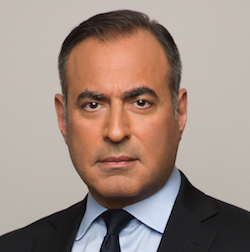
Efforts to repeal and replace the Affordable Care Act ultimately could contain good news for seniors housing, Welltower CEO Thomas DeRosa said Friday during the real estate investment trust’s first-quarter earnings call.
“The proposal for the repeal of Obamacare is very much focused on improving outcomes, reducing costs, and doing that by increasing competition,” he said of the American Health Care Act. “And I do believe that this should drive more hospital real estate to shut down. We cannot afford to keep the lights on in hospitals that continue to lose money in this country. And I think that’s going to drive a lot of census to other, lower-acuity settings, like post-acute care and seniors housing and medical office buildings, which really will become primary sites of care versus the traditional acute-care hospital.”
DeRosa added, however, that “it’s still very early to tell.”
Healthcare Trust of America’s planned $2.75 billion purchase of Duke Realty’s medical office portfolio, announced May 1, was “the deal of the week,” DeRosa said, adding that it also suggests good news for seniors housing as healthcare moves from a fee-for-service model to a value-based one.
“A new generation of outpatient medical real estate connected to lower-acuity settings like senior housing and modern post-acute care needs to be built in order to facilitate the transition to value-based healthcare,” he said. “This is a huge opportunity, perhaps the most compelling opportunity the real estate industry has seen in decades. So the enthusiasm for Duke’s healthcare assets is yet another indication that we are finally being recognized as an institutional investment class.”
More than 60% of the $1 trillion in hospital and medical office real estate is brick-and-mortar hospital real estate, DeRosa said, with 82% of hospital and medical office building real estate being owned by health systems and physician groups, 10% held by real estate investment trusts such as Welltower and 8% owned by institutional investors.
“If only a small portion of the 82% of this real estate transitions to REITs and other institutional investors, it’s a tens-of-billions-of-dollars investment opportunity,” he said.
Fifty-two percent of U.S. hospitals lost money last year, DeRosa said.
“Like many malls, strip centers and suburban offices, much of the hospital real estate in this country is obsolete, and health systems are looking to evolve their real estate footprint while they invest heavily in other areas, like technology,” he said. “The shift in patient demand is being reflected in real estate demand, as the spread between hospital cap rates and medical office buildings continues to widen.”
As of March 31, Welltower’s portfolio included 592 triple-net lease properties, which include independent living, assisted living and continuing care retirement communities as well as long-term care/post-acute care facilities in the United States, Canada and the United Kingdom; 421 seniors housing operating properties; and 264 outpatient medical buildings.
Among the senior living and post-acute companies with which Welltower has relationships are Benchmark Senior Living, Brookdale Senior Living, Genesis Healthcare, Kisco Senior Living, Legend Senior Living, New Perspective Senior Living, Revera, Sagora Senior Living and Sunrise Senior Living.
For the first quarter, Welltower’s funds from operations of $1.05 beat expectations by $0.01, and revenue of $1.06 billion beat expectations by $10 million and was up 1.0% year over year.



